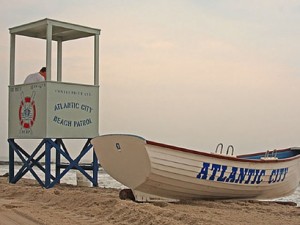Three casino proposals were weighed in the balance and two were found wanting, as the Kansas State Lottery Gaming Facility Review Board sifted the pros and cons, ultimately settling on the
 lowest-budgeted of the contenders, Kansas Crossing. The project, named for its strategic location at the intersection of U.S. 400 and U.S. 69, was deemed to be of the best size and the most realistic in its revenue projections. The fact that several of its investors, somewhat incestuously, are involved with two other Kansas casinos actually counted as a plus. Kansas Crossing got five of the seven votes.
lowest-budgeted of the contenders, Kansas Crossing. The project, named for its strategic location at the intersection of U.S. 400 and U.S. 69, was deemed to be of the best size and the most realistic in its revenue projections. The fact that several of its investors, somewhat incestuously, are involved with two other Kansas casinos actually counted as a plus. Kansas Crossing got five of the seven votes.
Phil Ruffin‘s Camptown Casino didn’t garner a single vote, even through Ruffin was prepared to pay cash on the barrelhead for the $84 million project. He took defeat in stride, saying, “I know Kansas Crossing will do a fantastic job.”
The second-place finisher, Castle Rock Casino Resort was described as having “a lot of wow to it,” but its financials were the subject of much  debate. Castle Rock would be only two miles from the Quapaw Tribe‘s Downstream Casino, in Oklahoma, and would have cost over twice as much as $70 million Kansas Crossing. Lottery Board consultant Michael Greene cast doubt upon Castle Rock’s revenue projections — and upon its ability to service $95 million in debt financing. Castle Rock bosses Brandon and Rodney Steven offered to raise $145 million in cash instead but Greene called the project’s finances “onerous enough to call into question the ability to operate as a going concern.”
debate. Castle Rock would be only two miles from the Quapaw Tribe‘s Downstream Casino, in Oklahoma, and would have cost over twice as much as $70 million Kansas Crossing. Lottery Board consultant Michael Greene cast doubt upon Castle Rock’s revenue projections — and upon its ability to service $95 million in debt financing. Castle Rock bosses Brandon and Rodney Steven offered to raise $145 million in cash instead but Greene called the project’s finances “onerous enough to call into question the ability to operate as a going concern.”
Castle Rock’s goose was cooked and Kansas Crossing representatives didn’t even address it in their presentation, focusing on the superiority of their project to Ruffin’s. Sorry about that, Phil. We really were rooting for you.
* New Jersey State Senate President Stephen Sweeney knows what he’s doing, trying to postpone until 2016 a referendum on breaking Atlantic City‘s monopoly on casino gambling. At the very least, he got  some new ammunition for his argument. A poll conducted by Fairleigh Dickinson University shows 56% of Garden Staters opposing casinos anywhere but Atlantic City and a relatively anemic 37% in support, meaning that proponents of expanded gambling have their work cut out for them.
some new ammunition for his argument. A poll conducted by Fairleigh Dickinson University shows 56% of Garden Staters opposing casinos anywhere but Atlantic City and a relatively anemic 37% in support, meaning that proponents of expanded gambling have their work cut out for them.
Those polled aren’t keen on the new tax dollars going solely to Atlantic City relief, either, so there’s another tough sell. If they have to go somewhere else to gamble, most respondents (69%) picked the Meadowlands, with Monmouth Park (49%) being the second choice and Newark bringing up the rear.
* The idea of casino expansion in Toronto is back in play and one newspaper supports the idea of putting it at Woodbine racetrack. That’s already the verdict of a study group. The racino already has  3,000 slots but wants 2,000 more plus 300 Vegas-style table games. City staff also recommend that the casino expansion be accompanied by an integrated-resort development that the Toronto Star “an upscale hotel, restaurants, a bar and club zone, cinemas and high-end shopping.” Support for all this runs much higher around Woodbine than in Toronto at large, where only a modest plurality (34%) is in favor. Woodbine already accounts for 30% of all Ontario casino revenues. Imagine what it could if its quota of gaming positions was essentially doubled.
3,000 slots but wants 2,000 more plus 300 Vegas-style table games. City staff also recommend that the casino expansion be accompanied by an integrated-resort development that the Toronto Star “an upscale hotel, restaurants, a bar and club zone, cinemas and high-end shopping.” Support for all this runs much higher around Woodbine than in Toronto at large, where only a modest plurality (34%) is in favor. Woodbine already accounts for 30% of all Ontario casino revenues. Imagine what it could if its quota of gaming positions was essentially doubled.
* Here’s a new way to wait for the bus. It’s also a clever way for Mohegan Sun to keep appealing to Massachusetts customers who might be inclined now to stay and play closer to home.
* One of my former bosses, Casino Enterprise Management‘s Peter Mead, has met with an untimely death. A generous and gregarious soul, his expansive presence will be missed. S&G sends its condolences to the Mead family.
